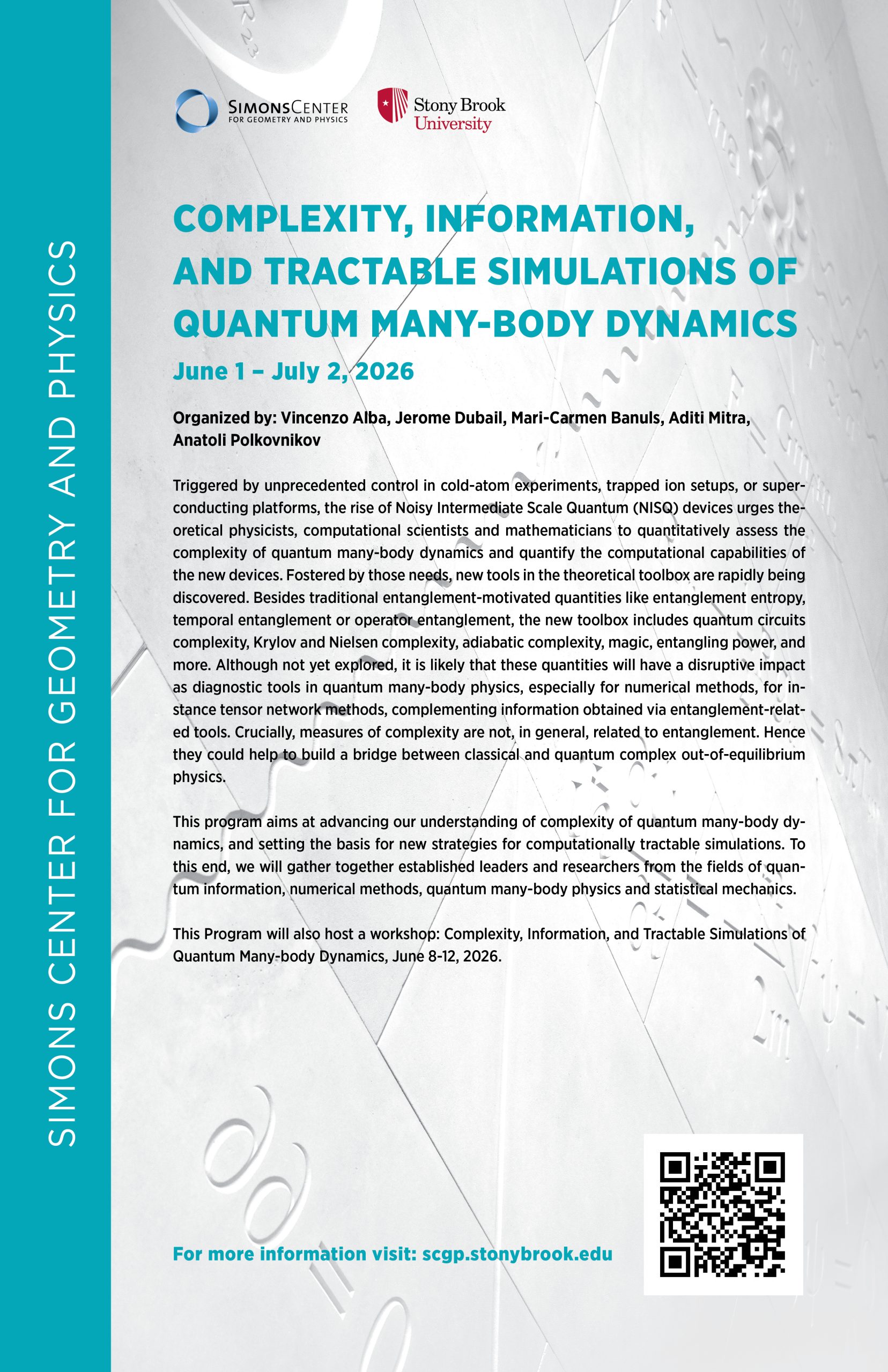ApplicationParticipant ListView Videos
Organized by:
Vincenzo Alba
Jerome Dubail
Mari-Carmen Banuls
Aditi Mitra
Anatoli Polkovnikov
Triggered by unprecedented control in cold-atom experiments, trapped ion setups, or superconducting platforms, the rise of Noisy Intermediate Scale Quantum (NISQ) devices urges theoretical physicists, computational scientists and mathematicians to quantitatively assess the complexity of quantum many-body dynamics and quantify the computational capabilities of the new devices. Fostered by those needs, new tools in the theoretical toolbox are rapidly being discovered. Besides traditional entanglement-motivated quantities like entanglement entropy, temporal entanglement or operator entanglement, the new toolbox includes quantum circuits complexity, Krylov and Nielsen complexity, adiabatic complexity, magic, entangling power, and more. Although not yet explored, it is likely that these quantities will have a disruptive impact as diagnostic tools in quantum many-body physics, especially for numerical methods, for instance tensor network methods, complementing information obtained via entanglement-related tools. Crucially, measures of complexity are not, in general, related to entanglement. Hence they could help to build a bridge between classical and quantum complex out-of-equilibrium physics.
This program aims at advancing our understanding of complexity of quantum many-body dynamics, and setting the basis for new strategies for computationally tractable simulations. To this end, we will gather together established leaders and researchers from the fields of quantum information, numerical methods, quantum many-body physics and statistical mechanics. This Program will also host a workshop: Complexity, information, and tractable simulations of quantum many-body dynamics June 8-12, 2026.


